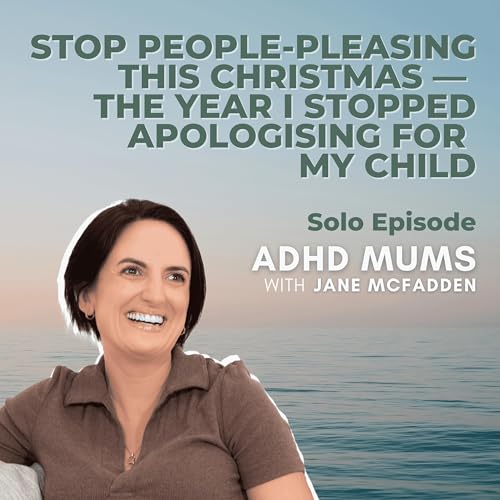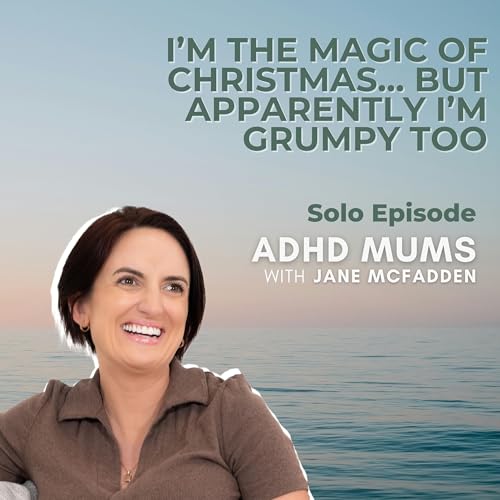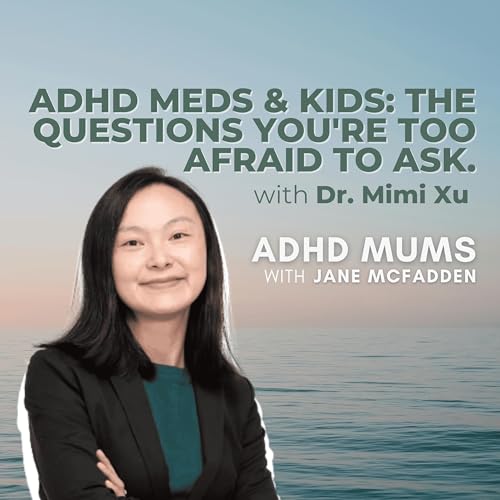Some days it feels like you need a medical degree just to parent a neurodivergent kid. The waitlists, the myths, the pressure to ‘get it right’ — it can all become overwhelming fast. In this episode, child psychiatrist Dr Mimi Xu finally gives mums clear, compassionate answers about ADHD meds for kids, without judgement or jargon.
💡 What We Cover
- Why ADHD medication is never a one-size-fits-all decision.
- When to see a paediatrician vs a psychiatrist — and why access is so broken.
- The truth behind ‘zombie kids’, personality changes, growth, appetite and sleep.
- What’s actually happening in the afternoon crash (and how to survive it).
- ADHD + Autism: does it change the medication conversation?
- What parents can do while they wait on endless public and private waitlists.
💭This Episode Is For You If…
- You feel scared of meds, scared of not trying meds, or stuck between two parents who disagree.
- You’re drowning in the 3pm–6pm chaos when everyone’s meds (including yours) have worn off.
- You’re exhausted from uncertainty, judgement or mixed messages from professionals.
- You want clarity without shame, pressure or clinical coldness.
- You’re parenting a neurodivergent child and just need someone to explain things like a human.
🧠 Resources & Helpful Tools
📌ADHD Screening & Support
Child ADHD Parent/Self-Test
A good starting point for parents wondering whether ADHD traits are showing up at home or school.
🔗 https://form.jotform.com/251610961002444
📌Medication-Specific Guides
A Guide to ADHD Medication
Perfect fit for this episode — covers stimulants, non-stimulants, side effects, appetite, sleep, titration and what’s expectedin the early weeks.
🔗 https://adhdmums.com.au/product/a-guide-to-adhd-medication/
📌Related ADHD Mums Medication Episodes
Stimulants vs Non-Stimulants – Solo Episode (S2E40)
Jane’s clear breakdown of how different medications work and how they often feel in real life.
🔗 https://adhdmums.com.au/podcast_episode/episode-40-adhd-medication- stimulants-vs-non-stimulants-solo-episode-with-jane-mcfadden/
What Happens If You Don’t Have ADHD & Take ADHD Meds (S2E47)
Important context for safety, myths, and co-parent disagreements.
🔗 https://adhdmums.com.au/podcast_episode/episode-47-what-happens-if-you-take-adhd-medication-without-adhd-solo-episode-with-jane-mcfadden/
📝 About Dr Mimi Xu
Dr Mimi Xu — Website (General Info + Resources)
🔗 IG Account - https://www.instagram.com/drmimixu/
🔗 https://www.child-psychiatrist.com.au/
Lionheart Clinic
🔗 IG Account -...
 Dec 17 20257 mins
Dec 17 20257 mins 19 mins
19 mins 10 mins
10 mins 10 mins
10 mins 14 mins
14 mins 26 mins
26 mins 21 mins
21 mins 33 mins
33 mins
